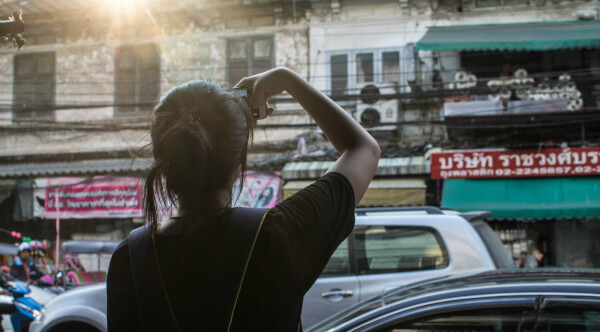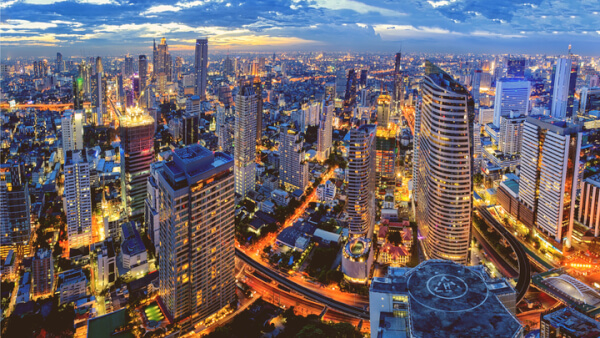Vaccinations for Thailand: What you should know before you go
Thailand is a hotbed for tourists from abroad. If you’re traveling from the US, Britain, or Australia, there are usually no compulsory vaccinations required...

Most countries have checks in place to control the amount of cash that travellers can bring in, and take out. These are designed to do a number of things - they help authorities make sure money isn’t being moved to fund illegal or terrorist activities, and they also stop money laundering. For some countries, such as Thailand, controls also help make sure there’s not too much volatility in the exchange rate between the Thai baht and the currencies of Thailand’s major trading partners.
There are different sets of rules about carrying cash in and out of Thailand, depending on whether you’re using a foreign currency, or baht. It can also make a difference where you’re going to, or coming from.
The rules are very clearly set out, but it’s important to know them before you go, so you don’t fall foul of the law. So, if you’re headed to Thailand soon*,* check out this this guide to help you figure out how the regulations might affect you.
Details of the customs regulations in Thailand can be found on the Thai Customs Board website.
According to the details available online, you can bring up to $20,000 - or the equivalent - into Thailand, without needing to take any specific action. Carry in excess of that, and you have to complete a declaration when you arrive - more on that later.
However, it’s worth noting that the actual declaration form you're required to complete states that amounts worth over $15,000 should be declared. If you’re carrying over this amount, in or out of Thailand, it’s worth checking with a Border Guard, to ensure that you’re not over the limit.
If you bring too much cash into the country and don't declare it, it’s a criminal offence. That can mean that your cash is seized if found, and you’re subject to criminal charges, fines and even prison in the most serious cases.
The definition of cash is fairly wide. For this purpose, the strict definition of what you must declare covers both cash and negotiable monetary instruments. That means that as well as hard currency, anything that could easily be passed on or converted to cash, should be declared.
Ask at the border if you have any concerns - but here’s a basic round up of what counts:
If you’re bringing in more than the limit, you have to report to the customs officers at your point of arrival, as they must submit a report. You’re required to give additional information and answer questions about what cash you’re carrying, why, and where it came from.
You have to complete a declaration form and answer any questions the Border Police may ask. Failure to do so is a criminal offence.
The regulations regarding the amount of foreign money you can take out of Thailand, and the amount of Thai currency you can take out, are different. Although you can take up to the equivalent of $20,000 out of the country if it's in a foreign currency, different rules apply if you’re planning on taking out Thai baht.
You’re only able to take up to THB 50,000 if you’re leaving the country with Thai currency. To give an idea, that’s around about USD 1500.
The rules are slightly relaxed if you’re only going into one of the bordering countries - Cambodia, Laos, Myanmar and Malaysia, as well as Vietnam, or the Yunnan province of China. In this case, you can take up to THB 2,000,000 - but you must make a declaration to Thai Customs Authorities, if you’re planning on taking more than THB 450,000 to these countries.
Depending on where you’re going, you might find that there’s further paperwork to complete once you arrive at your destination, too. For example, if you’re leaving Thailand, and headed to Europe with more than the equivalent of about €10,000, you’ll have to complete another declaration upon arrival. The exact process varies a bit depending on the country. Make sure you know all the applicable laws before you travel.
Most travellers find that there’s no need to carry a lot of cash. It’s a hassle, and if can be unsafe. Even though most visits to Thailand are trouble-free, carrying around a wad of cash is a good way to make you a target for thieves. And you’re all the more likely to be a victim if you’re disoriented while exploring, or distracted by sightseeing.
If you’re just taking a simple trip abroad, you can avoid unnecessary stress if you use ATMs to withdraw money when you need it in Thailand.
The other issue with taking cash along to pay for your trip, is that it’s often hard to find a good deal on exchange rates when you arrive in Thailand. More often than not the most convenient exchange offices - like those at the airport or your hotel - offer poor exchange rates. So, either you waste your precious holiday time searching for a better deal, or pay over the odds to exchange your currency in a convenient location. Tough call.
Want to use ATMs to access your cash while you’re in Thailand? The good news is that you can use Wise to change your money at a fair rate. If you, or a friend, have a Thai bank account, you could transfer your cash using the same exchange rate that banks use among themselves. Whatever currency you’re exchanging, you get the best available exchange rate, with only pay a small, upfront fee to make the transfer. There are no nasty surprises, and once your cash is in baht, you can withdraw it from ATMs when you need it, avoiding the fees and hassle involved in using exchange offices.
If you live abroad, or even just travel a lot, then an even better option which could save you time and money is the Wise borderless multi-currency account.This smart new account lets you hold your cash in multiple different currencies all at once, and view your account balance at a glance. Whenever you need to, you can move your cash between currencies using Wise. You’ll always get the best rate available, and there are no hidden fees. Consumer debit cards will be available for borderless accounts from early 2018, too, making your money even more flexible.
The rules regarding taking money in and out of Thailand are actually quite simple, but if you’re unfamiliar with them, you can accidentally run into problems. Luckily, most travellers don’t need to carry around lots of cash when they take a trip abroad. Wise offers better ways to get your money where you need it. It’s simple, secure and could even leave you better off. So all you have to do is enjoy your trip to Thailand.
*Please see terms of use and product availability for your region or visit Wise fees and pricing for the most up to date pricing and fee information.
This publication is provided for general information purposes and does not constitute legal, tax or other professional advice from Wise Payments Limited or its subsidiaries and its affiliates, and it is not intended as a substitute for obtaining advice from a financial advisor or any other professional.
We make no representations, warranties or guarantees, whether expressed or implied, that the content in the publication is accurate, complete or up to date.

Thailand is a hotbed for tourists from abroad. If you’re traveling from the US, Britain, or Australia, there are usually no compulsory vaccinations required...

Thailand’s vibrant capital is one of the world’s most visited holiday destinations.Over 15 million international tourists flock to Bangkok every year to see...

Are you travelling to Thailand for your dream holiday? If so, you may be worried about where to get a good deal on Baht (Thai currency). While ATMs are...

Everything you need to know about what money and banks to use in Thailand.